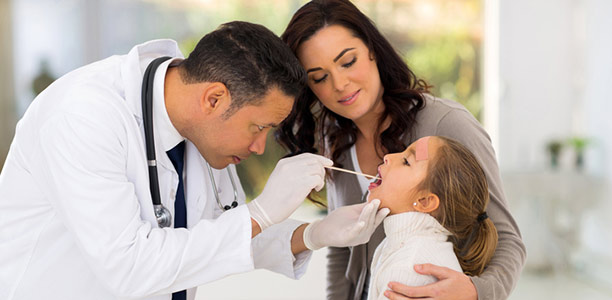Australia’s first national survey of parent confidence in GPs found fewer than half of parents were completely confident in a GP to handle most of their child’s general health issues.
Lead researcher, University of Melbourne Professor Gary Freed, said parents’ diminishing confidence in GPs could significantly affect the organisation and structure of the health-care system as more families are attending emergency departments (EDs) for lower-urgency ailments.
“GPs are the backbone of the Australian health care system. They are being asked to do more and more, especially for the growing proportion of adults and elderly in the population. We need to make sure GPs have the training and support to provide the best care possible for children,” Professor Freed said.
“We know from our previous research that most parents presenting to the ED with a child with a lower urgency condition did not try to go to their GP first, and this was not due to a lack of available GP appointments.
“We need to be able to ensure both the competence of GPs in the care of children, and the confidence among parents in that care.”
Professor Freed said there had been an increase in ED presentations for children and an increase in specialty referrals across the nation.
He said it was unclear why parents reportedly lacked confidence in GPs, but GPs and trainees now saw fewer children on average, which may contribute to reduced confidence in their ability.
Co-author, University of Melbourne General Practice Professor Neil Spike urged parents whose children had non-urgent problems to visit their family GP rather than a hospital emergency department.
“GPs are trained to provide the care and support families need, we encourage parents to make the most of their expertise, particularly in non-emergencies.”
Professor Spike said more work was needed to determine why parents were seeking hospital emergency services rather than appropriately utilising the skills of their GPs.
The internet-based national survey of 2100 parents of children aged from 0-17, published in the Journal of Paediatrics and Child Health, found only 44% of parents were completely confident their GP “can handle almost all general health issues for my child” – while 45% were “mostly confident”.
And only slightly more than half (56%) of parents were totally confident in a GP to provide care for minor injuries for a child not needing an X-ray.
Parents aged over 40, and the 70% of parents who were always bulk billed, showed greater confidence in GPs than others. Those aged under 40 who had completed secondary school were less likely than average to express complete confidence in a GP.
(Source: University of Melbourne, Journal of Paediatrics and Child Health)










